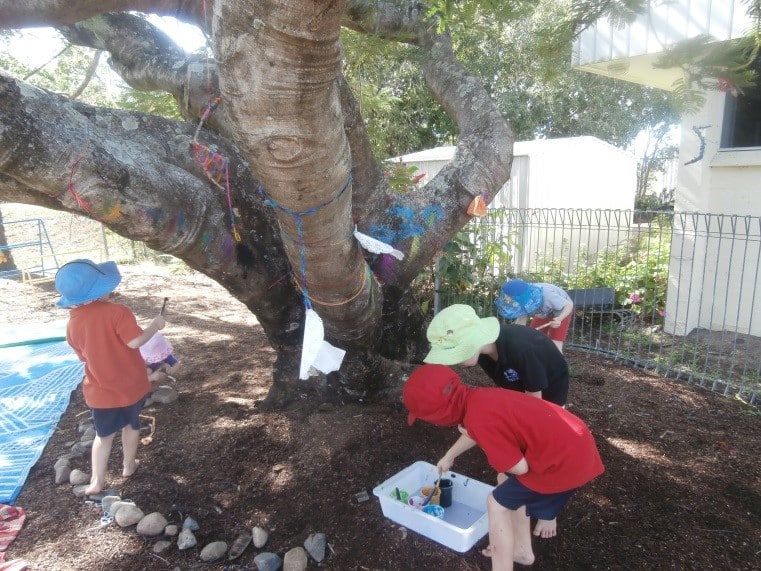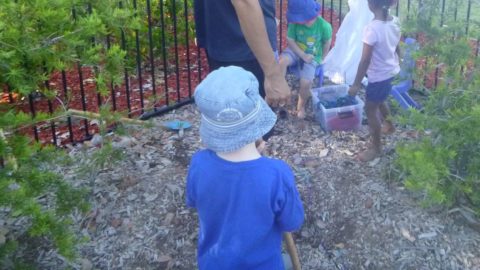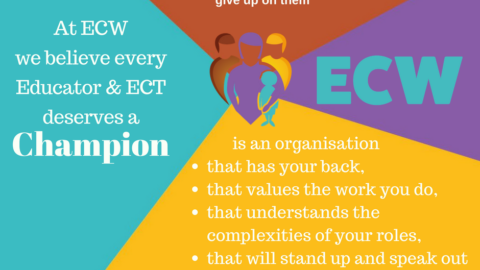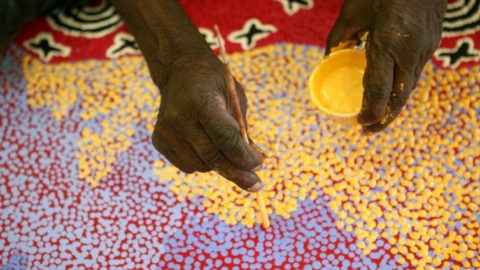Linking theory to practice
Article written and contribute by
ACECQA National Education Leader Rhonda Livingstone
‘Neither a doctor nor a pilot would implement practice without theory and knowledge. As educators, we don’t either’
(Educators’ Guide to the Framework for School Age Care, p. 21)
Theories, and their reciprocal relationship to practice, provide a foundation for pedagogy and offer a variety of conceptual understandings or ‘ways of knowing’ about education and care. Different theories inform approaches to children’s learning and development, and guide educators’ work with children, families and communities. They open up opportunities to gain new insights, support educators to work more confidently and effectively, and articulate the ‘what’ and ‘how’ of their practice and, importantly, explore how this is consistent with the ‘why’.
Professional standards and fundamental values of the education and care profession that are reflected in the Early Childhood Australia (ECA) Code of Ethics include: taking responsibility for articulating professional values, knowledge and practice; basing work on research, theories, content knowledge, practice evidence and an understanding of children and families with whom educators work; and engaging in a ‘lively culture of professional inquiry,’ critical reflection and ongoing learning that builds knowledge and capacity.
‘As educators, we find a lot more job satisfaction and professional growth if we engage in seriously thinking about what we believe and what we do’
(Educators’ Guide to the Early Years Learning Framework, p. 14)
Educators should consider a range of contemporary theories and approaches to inform and guide their practice and weave together the strands of their own beliefs, values, professional knowledge, skills and experience to form a rich tapestry of meaningful pedagogy. The approved learning frameworks (Early Years Learning Framework, p.11; Framework for School Age Care, p.8) remind us that: ‘drawing on a range of perspectives and theories can challenge traditional ways of seeing children, teaching and learning, and encourage educators, as individuals and with colleagues, to:
• Investigate why they act in the ways that they do
• Discuss and debate theories to identify strengths and limitations
• Recognise how the theories and beliefs that they use to make sense of their work enable but also limit their actions and thoughts
• Consider the consequences of their actions for children’s experiences
• Find new ways of working fairly and justly.’
Central to sustaining high quality pedagogy, reflective practice is a form of ongoing learning – an essential technique that affords educators the opportunity to reshape their pedagogical design and pattern of practice over time. The positive impact that reflective practice has on outcomes for children and families is clearly documented in research literature.
Thinking deeply about practice and engaging in a lively culture of professional inquiry that challenges and extends current thinking, is an essential part of updating and enriching professional capacity. It enables educators to act in a more informed way and understand the intersection of theory and practice (praxis) in the provision of quality education and care. Such critical and reflective discussion also allows various educators within the one setting to establish common beliefs and use this as a powerful path forward in planning and decision-making.
The National Quality Standard (NQS) and the approved learning frameworks both emphasise the significance of critical reflection on children’s learning and development, the effectiveness of current practices and how these might be changed or improved. The new Exceeding NQS guidance for standards further reiterates the importance of critical reflection in contributing to quality education and care provision and improved outcomes for children, families and educators. ‘Practice is informed by critical reflection’ forms one of the three themes which must, from 1 February 2018, be demonstrated in service practice to be rated at Exceeding NQS at the standard level. To be rated Exceeding NQS in a quality area, all standards in that quality area must be rated Exceeding NQS.
With this in mind, it is worth reflecting on the theoretical and philosophical influences – including the contemporary theories and research evidence reflected within the approved learning frameworks – which shape the service philosophy and provision of quality education and care within your service. The following provocations may guide your reflection and inspire professional discussion:
• What beliefs, values, theories or approaches underpin your education and care setting and assist your work?
• Are educators confident in talking about what they do and why – including knowing the theories that influence the approaches they take in their pedagogy?
• How do you learn about latest theories or approaches?
• How do you identify and communicate mutual beliefs and values in your setting?
• How do you reconcile differences in beliefs, values and attitudes?
Image provide with the ECW Good Practice Story titled The Climbing Tree. Written by Angela Albert (Current Director/Teacher 2016 & Carolyn Atkinson past Director/Teacher 2015)









What a great post, Lee Gane! With the recent ethical turmoil that accompanies Australia Day. I have been more conscious than usual of the need to reflect and to develop clarity around choices. One of your questions in particular resonates with me – “How do you reconcile differences in beliefs, values and attitudes?”
This seems to me to be one of the greatest challenges we face as Educators. Finding common ground with those who do not share your viewpoint or your values requires a great deal of reflection and compromise. For me, the reflection is not the hardest part – the compromising is! So now, I am reflecting on how best to compromise!